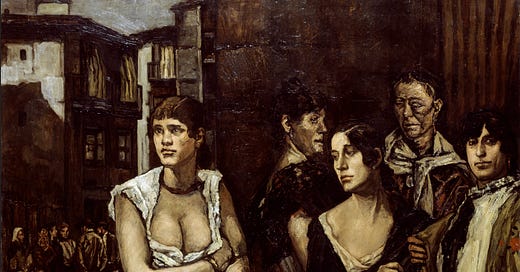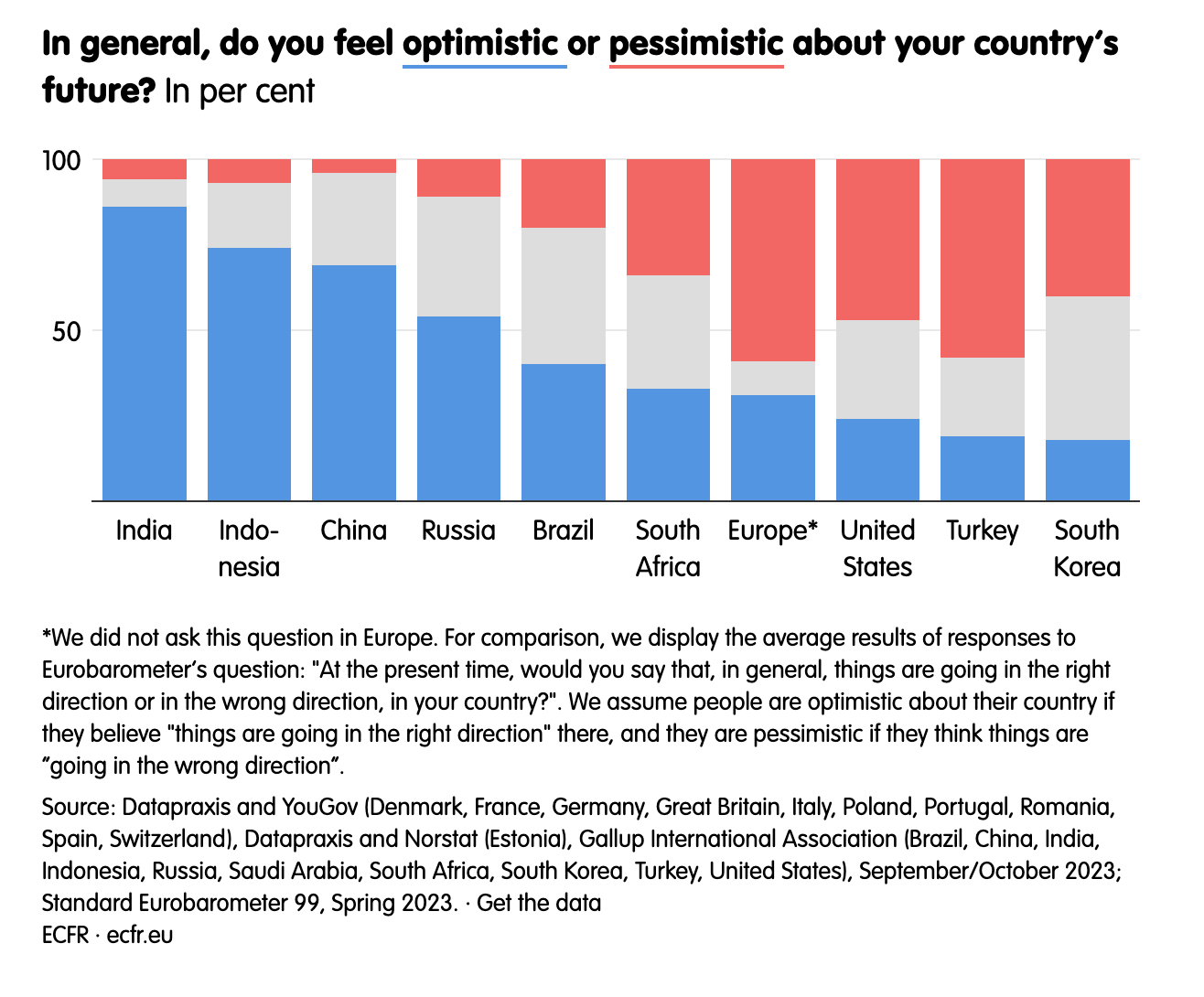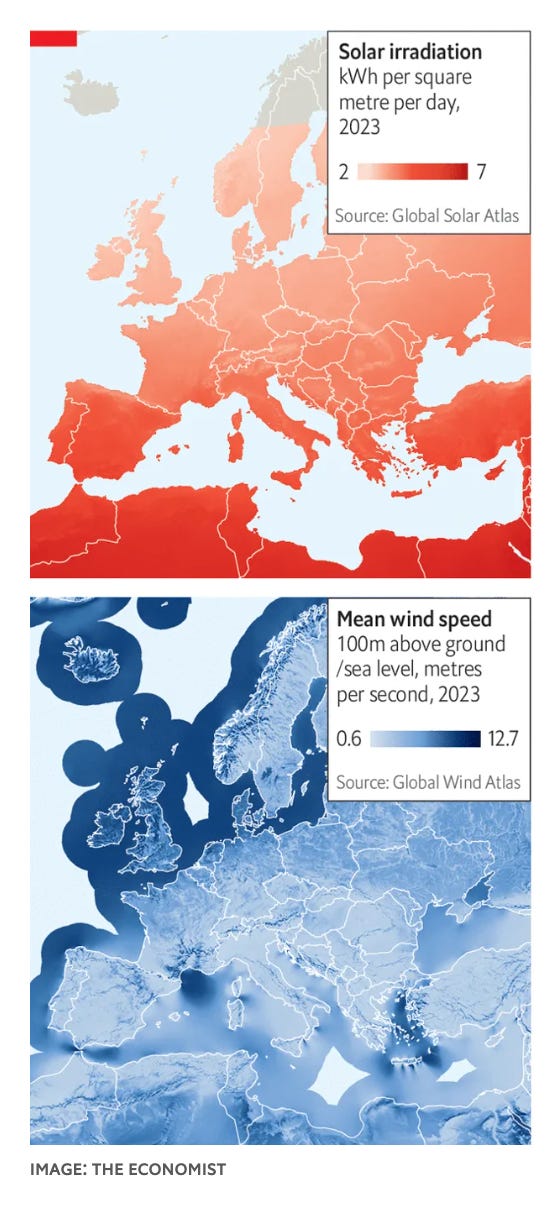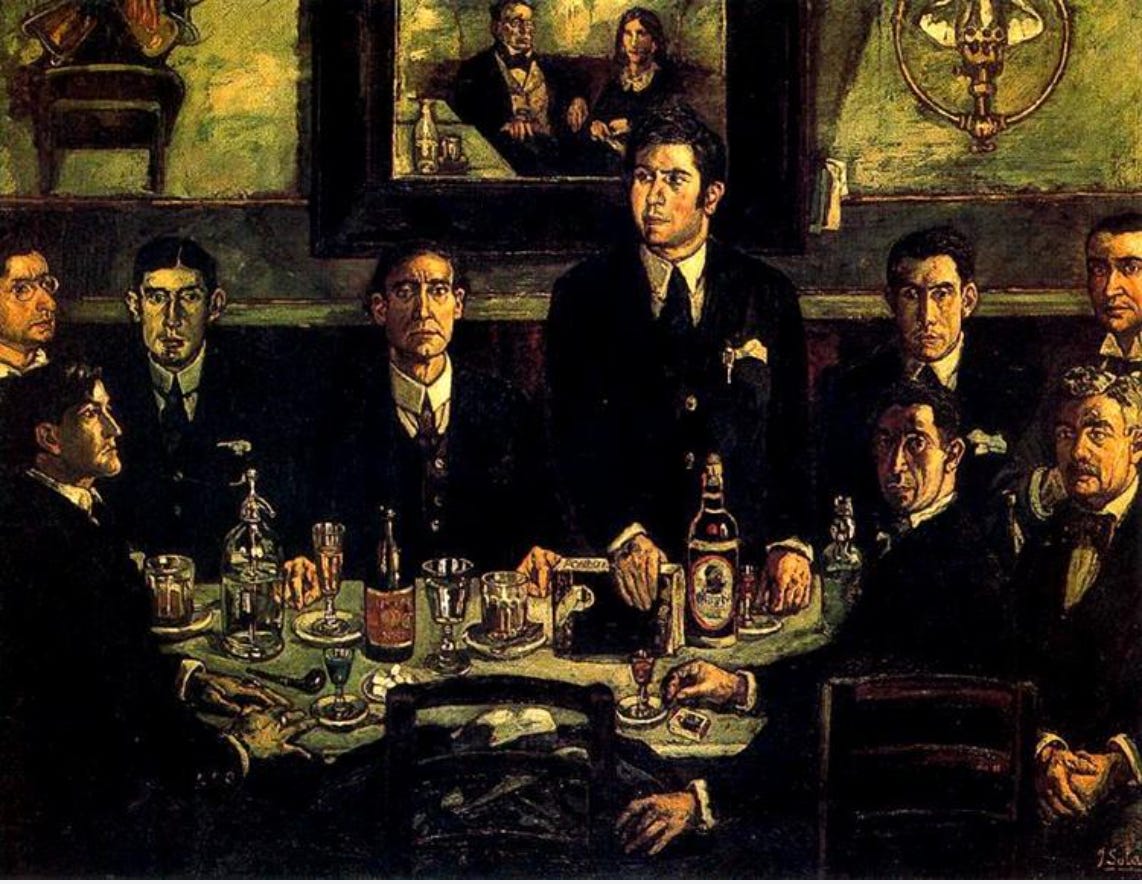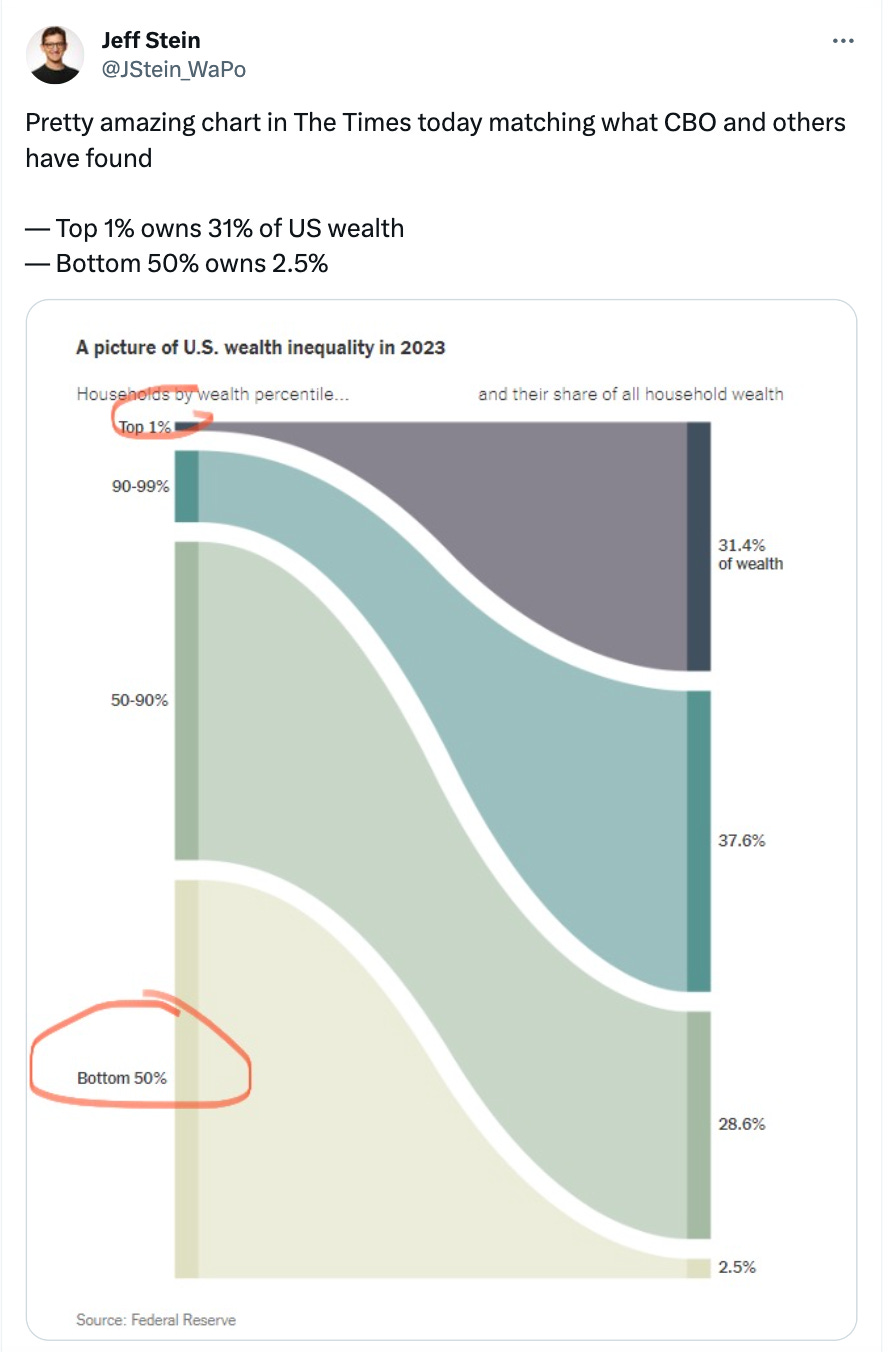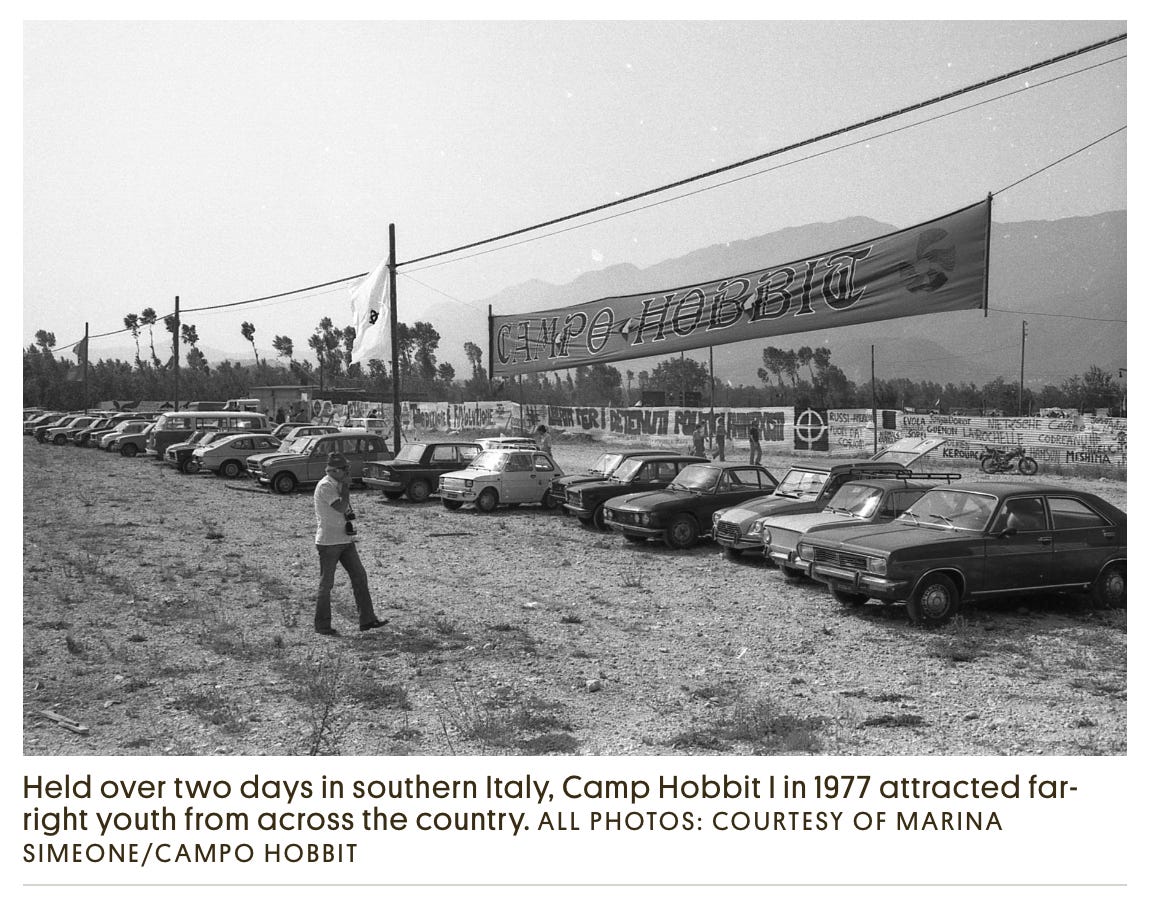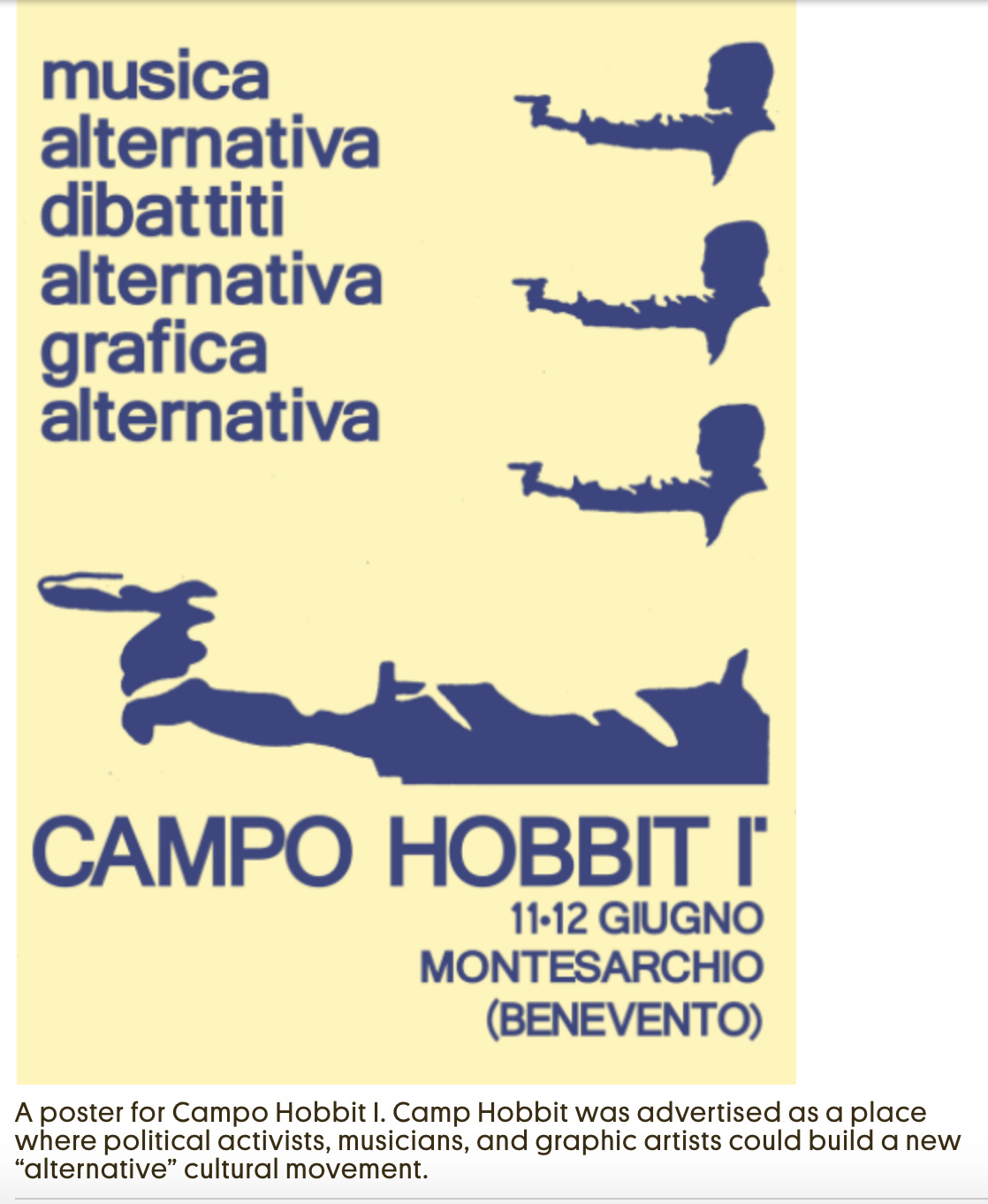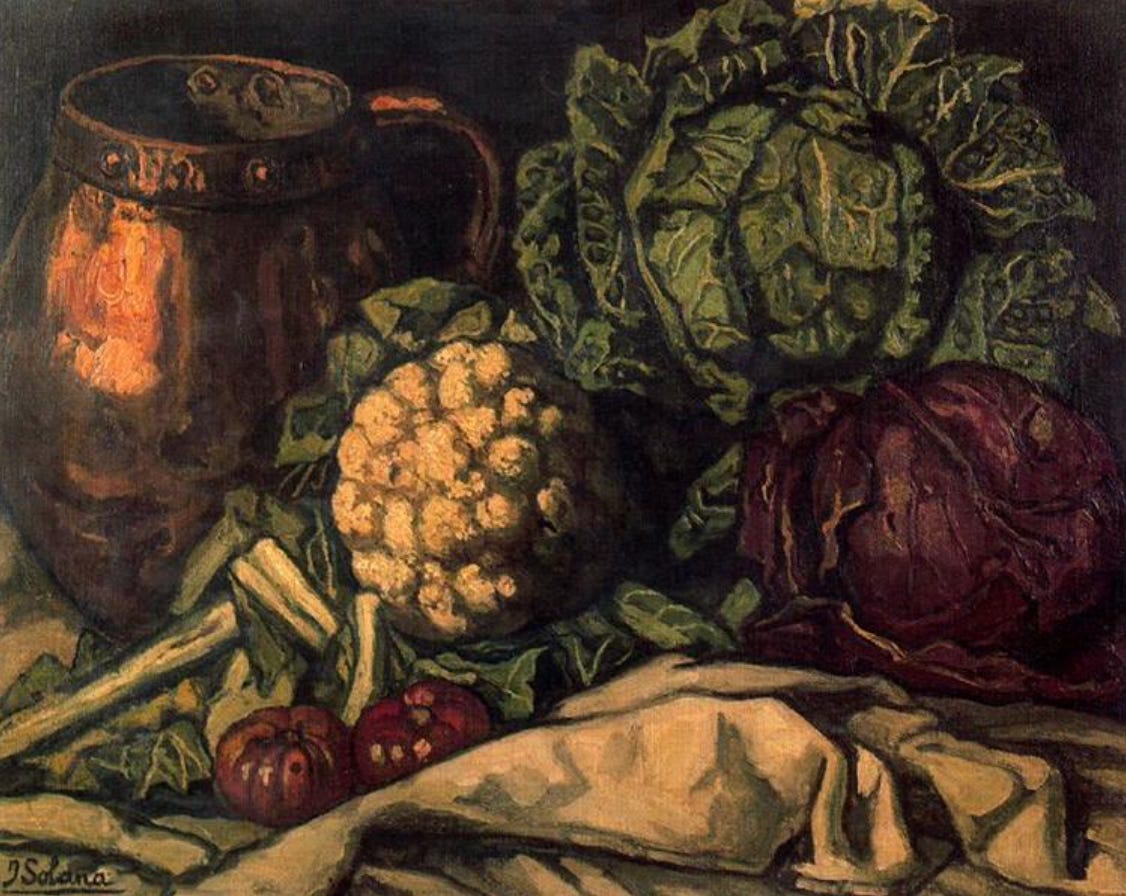The Mediterranean energy hub, American pessimism, Italy's far-right Hobbit cult & Walter Benjamin's writing tips
Great links, images and reading from Chartbook Newsletter
José Gutiérrez Solana, On the Game, 1932-3
Gutiérrez Solana (Madrid, 1886 - Madrid, June 26, 1947) was a painter and writer who was a key figure in the Spanish cultural revival of the early 20th century. He attended art school in Madrid from 1900 to 1904. As a young man, he spent his days in the slums and suburbs of Madrid and in the Cantabrian harbours, studying the most wretched aspects of Spanish life. Influenced by the Spanish masters, Gutiérrez Solana painted a tragic view of urban life, scenes of grief and horror rendered in sombre earth tones and blood reds. He applied thick layers of paint, charging his subjects, which often included bulls, urban landscapes, taverns, and prostitutes, with a garish energy. He first exhibited his work in 1907 and won medals for his paintings in 1922, 1929, and 1942. A man respected within his country, Gutiérrez Solana led an isolated life in Madrid, despite his honours.
Source: Gandalf’s Gallery
Thank you for reading Chartbook Newsletter. This is the free version of Top Links. To get the full Top Links feed with lots more material and analysis, please click here:
China vs USA
Somebody appears to be having a good time!
Meanwhile, a telling comment from the Mercedes-Benz CEO, evidencing a world where American pressures are not the only thing in town: “For us, de-risking doesn’t mean reducing our presence in China but increasing it” h/t Noah Barkin
And Americans increasingly have a problem with the future. Remarkable data from an ECFR survey:
The Mediterranean as Europe’s energy hub of the future
The Mediterranean has always been a conduit for energy. From the days of Roman dominance to the nineteenth century it was manpower in the form of slaves. Today it is mostly natural gas. Half-a-dozen pipelines connect Europe to Africa and the Middle East. The eu depends on the region for over a third of its natural-gas imports. In the age of renewable energy, countries on the Med boast some of the best conditions on Earth for harvesting natural forces.
Solar capacity shows vast potential (see map). Spain basks in a daily average of 4.6 kilowatt-hours (kwh) of sunlight per square metre and Morocco in 5.6kwh, double what Germany can expect. Sparse populations mean that Spain and Portugal have ample land for such plants, as do the deserts of north Africa and the Middle East. In parts of Morocco and Mauritania both sun and wind are abundant, forming rare sweet spots where electrolysers can run virtually non-stop. “There are only ten such locations around the world,” explains Benedikt Ortmann, who runs the solar business of BayWa, a German energy and construction company.
Source: The Economist
Dear Reader,
Glad you are enjoying this Top Links. Chartbook Newsletter is fun to write. And I’m delighted it goes out for free to readers around the world. But it takes a lot of work! What sustains that effort are voluntary subscriptions from paying supporters. As a thank you, several times per week, paying supporters of Chartbook Newsletter receive an email like this, jam-packed with fascinating images, links and reading, as well as longer analytical essays. This free email is just some of that content. If you would like to receive the full Top Links in future, click here to join the supporters’ club:
Is greedflation real?
Subscribers only.
Relative (energy) costs
Subscribers only.
José Gutiérrez Solana, The Coffee Gathering Pombo, 1920
America is quietly abandoning multilateral trade policy in Asia
Subscribers only.
Crude times
Subscribers only.
Walter Benjamin on writing
Subscribers only.
American inequality visualized
Italy’s far-right Tolkien obsession
But when The Lord of the Rings was first published in Italian, in 1971, the latent politics of his stout-hearted heroes bubbled to the surface. Appearing when it did, The Lord of the Rings had an outsized influence on the Italian cultural scene. In the early 1970s, Italy was in the midst of a cultural upheaval as great as that Evola felt in the aftermath of the First World War.
And they weren’t messing around:
Fascinating, by John Last in Atlas Obscura
José Gutiérrez Solana, Still life with Red Cabbage, Copper, Cauliflower and Cabbage, 1921

